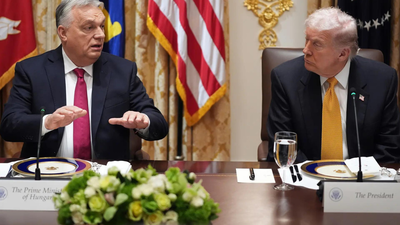US Grants Hungary One-Year Exemption from Russian Oil Sanctions
The United States has granted Hungary a crucial one-year exemption from sanctions on Russian oil and gas, providing significant relief to Prime Minister Viktor Orbán’s government amid ongoing energy challenges.
Key Takeaways
- Hungary receives 12-month exemption from US Russian oil sanctions
- Exemption follows personal appeal by Orbán during White House meeting
- Trump cited Hungary’s landlocked geography as key factor
- Hungary commits to $600 million US LNG purchase as part of deal
Why Hungary Received Special Treatment
During their first bilateral meeting since returning to power, President Trump acknowledged Hungary’s unique geographical constraints. “We’re looking at it, because it’s very different for him to get the oil and gas from other areas,” Trump stated, emphasizing Hungary’s landlocked status and lack of seaports.
“As you know, they don’t have … the advantage of having sea. It’s a great country, it’s a big country, but they don’t have sea. They don’t have the ports.”
Orbán stressed the vital importance of Russian energy for Hungary’s economy, warning that cutting supplies would have severe consequences for the Hungarian people.
Economic Impact and Energy Security
The exemption protects Hungary from the full impact of recent US sanctions against two major Russian oil companies. Orbán had previously warned that severing Russian energy ties would bring Hungary’s economy “to its knees.”
As part of the agreement, Hungary committed to purchasing approximately $600 million worth of US liquefied natural gas, balancing energy partnerships while maintaining crucial Russian supplies.
Focus on Ukraine Peace Efforts
The leaders also discussed the ongoing conflict in Ukraine, with Orbán emphasizing the importance of peace efforts for regional stability.
“It’s a most important issue for us, and we would like to discuss with you how we can contribute to help you in your peace efforts,” Orbán told Trump.
The meeting occurred against the backdrop of postponed plans for a Trump-Putin summit in Budapest, which was cancelled after Russia rejected ceasefire proposals.




